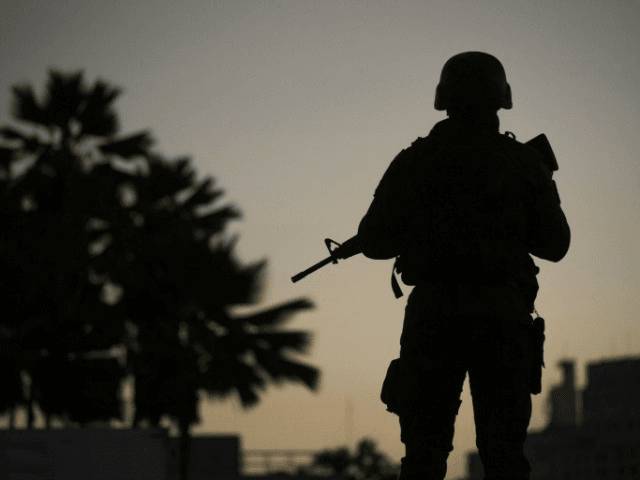The Brazilian state of Roraima demanded military reinforcements this week to address the growing deluge of Venezuelans fleeing the increasingly oppressive socialist regime in their home country.
Venezuelans have also fled into Colombia by the tens of thousands, leading Colombian officials to closely study Turkey’s response to the million-strong Syrian refugee flow into the nation. Neighboring countries fear that the number of Venezuelans flocking to their borders will grow as dictator Nicolás Maduro uses a fabricated socialist lawmaking body to consolidate his power.
The Brazilian Globo media network reported Wednesday that Roraima governor Suely Campos organized a meeting Wednesday with national security officials and spoke to President Michel Temer on the phone, as well as Defense Minister Raul Jungmann, about reinforcing the Brazilian/Venezuelan border.
“We have two thousand kilometers [1242.742 miles] of dry frontier,” Campos told reporters. “We want a preventive action by the Armed Forces to curb the entry of criminals and prevent Roraima from becoming a passageway for these crimes.”
The crimes in question are largely drug and weapons trafficking. Globo notes that Brazil’s Civil Police have evidence indicating that the extensive border between the two countries is littered with “clandestine access routes” used by illegal weapons and drug traffickers. Roraima borders Venezuela’s Amazonas state and, deep in the Amazon rain forest, provides a topography that lends itself to hiding places for drug criminals and other violent actors.
Without taking the Venezuelans into account, Roraima is extremely ill-equipped to take in more criminals, as it is suffering a major prison overpopulation problem that has led to numerous gruesome murders, prison riots, and escapes. In January, governor Campos made the same call for more military support to the capital in response to a massive prison riot that killed 33 people in a prison in her state, featuring beheadings, burnings, and hearts cut out of inmates’ chests. The riot, one of a series in various prisons throughout the country, was part of a larger turf war between two major Brazilian drug gangs: the First Capital Command (PCC) and the Red Command (CV).
“The president was fairly sensitive to our plight and said that he will meet with the defense minister to handle our issue,” Campos said.
About one hundred National Guard soldiers remain in Brazil from the initial deployment following the prison riot, which Campos has requested to keep for another six months.
Brazilian officials do not appear to feel threatened by civilian Venezuelans seeking food and shelter in their country, however, and have asked for not only military and law enforcement assistance, but bureaucratic aid in processing the high volume of foreigners entering the country. Globo claims Campos has demanded Brasilia transfer immigration officials out of the capital to the border regions to help vet and document the Venezuelans coming in, ensuring that only non-criminal exiles remain in the country.
The number of Venezuelans flooding the border has increased dramatically in the past year. Government figures show that 6,438 Venezuelans have requested asylum in Brazil this year, compared to 230 in 2015 and 2,230 last year. As Venezuela’s currency continues in freefall and the Maduro regime continues to use violence against peaceful protesters, those numbers are expected to rise exponentially.
“We are preparing ourselves for a number of scenarios, it is evident that an increase in migration is predicted, and we are drafting contingency plans for that,” Brazilian Migration Department official Silvana Vieira Borges told the Agence-France Presse (AFP) this week.
Concerns regarding government services in Brazil initially surfaced late last year regarding an influx of Venezuelans seeking medical care. The socialist Venezuelan health care system has collapsed in its entirety, with shortages of up to 90 percent of drugs the World Health Organization (WHO) considers necessary for a functioning health care system.
“Demand is growing faster than I can manage. Every month the number of patients grows exponentially. How can I plan for that?” a hospital director in Roraima said in December. “What happens if this continues? I’m going to run out of supplies by the middle of the year.”

COMMENTS
Please let us know if you're having issues with commenting.